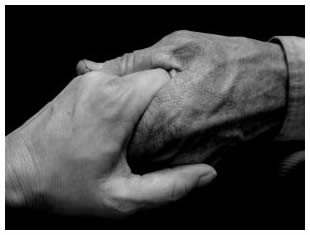 It takes a special person to support a friend who suffers from panic attacks and is using exposure therapy to recover from their condition. Patience, perseverance, understanding, and a caring nature are essential to facilitate recovery. But with help, you can learn to assist your friend overcome this debilitating condition. Following on from our first article in this series, here are some more tips to move your friend towards recovery.
It takes a special person to support a friend who suffers from panic attacks and is using exposure therapy to recover from their condition. Patience, perseverance, understanding, and a caring nature are essential to facilitate recovery. But with help, you can learn to assist your friend overcome this debilitating condition. Following on from our first article in this series, here are some more tips to move your friend towards recovery.
1. Accept that it is up to your friend to decide what they can and cannot do in each session. It is not up to you to set the goals, but the sufferer. The phobic person feels they have lost control of their lives due to the panic and anxiety they suffer, and the whole point of exposure therapy is to give the sufferer back a sense of control. Hence it is imperative that the sufferer decide on the goal. Resist the temptation to push the phobic person just that little bit further. An hour of good progress can be rapidly compromised by persuading the sufferer to do more than they feel comfortable with.
2. Develop a set of coping statements with your phobic friend. Rehearse them together prior to the exposure session. If possible, write out these statements on cards, so they are readily accessible to both you and your friend. When anxiety strikes, be ready to encourage your friend to repeat them. Alternatively speak out these phrases to your friend so that they can hear them and take them on board.
3. If your friend starts to lose control during a practice session, calmly reassure them and ask them what they would like to do. If they wish to leave the place where the panic has occurred, then go with them to another place where they feel more comfortable. Sit quietly with them. Alternatively, they may wish to move around to release the excess adrenalin in their body. Repeat that you will not leave them and that they are going to be all right. When they express thoughts of failure and despair, reassure them that setbacks happen and that the next session will be different. They may recover enough in the current session to want to repeat what they have unsuccessfully tried to do. If so, calmly repeat the process and encourage them every step of the way.
4. Praise is very important to a person suffering for Panic Disorder. Although they may have achieved a simple task such as buying a toothbrush, remember that this is the phobic’s equivalent of you or me going to the moon. It is terrifyingly scary for an extremely phobic person to undertake even the most simplest of tasks. And while they may be euphoric about achieving the goal of walking to the mailbox and back, they are also very much aware of the insignificance of that task to the everyday person, indeed even to themselves prior to becoming ill. The phobic person therefore needs a lot of praise and reassurance. You as their friend are in an excellent position to appreciate the huge achievement they have made. Be plentiful with the praise!
5. Be prepared for a long journey of recovery. If you think this process with take a week or two at most, you’d be wrong! Expect to devote up to twelve months towards helping your friend overcome this condition. If you feel that you cannot commit to anywhere near this time frame, be upfront right from the start. Phobic people need stability in their lives and starting a program only to bail out of it after 4-5 weeks just as progress is being made will do harm to your friend. Be fully aware of what you are committing to before doing so.
6. Be consistent. Be in the place where your friend has asked you to be when they attempt to undertake a task on their own. Do not wander off, consumed with your own agenda. When you are out doing exposure therapy, it is your responsibility to give your friend your undivided attention.
7. Take a break when you need to. If you’re not up to a session on a particular day, say so. Phobic people are generally very sensitive individuals and will pick up on your distracted mood and feel insecure. Reschedule for another day.
Being a support person for your phobic friend will be slow, frustrating, and often difficult. However the rewards of seeing your friend free from the prison of their own mind will be worth it. Good luck!
Contact Beth McHugh for further information or assistance regarding this issue.

